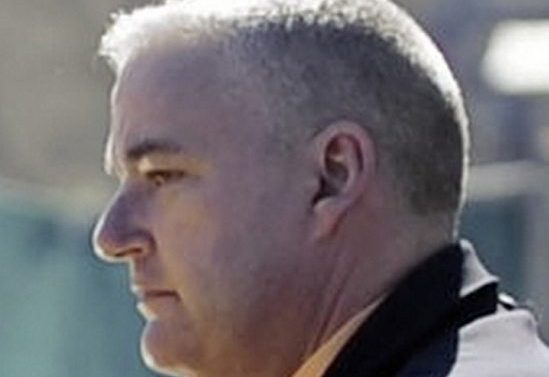AUGUSTA — The state has denied a request for a copy of video surveillance from a courtroom where a Kennebec Sheriff’s deputy working as a court marshal took a cellphone photo of a defense attorney’s notes and emailed it to the prosecutor, a move that has been termed a breach of protocol and an ethical violation.
The refusal of the request, which was made by the Kennebec Journal under the state’s Freedom of Access Act, cites an order by the Maine Supreme Judicial Court stating that court security surveillance video is confidential.
“Although there are limited circumstances where such video can be provided, your request does not meet the requirement for significant and extenuating circumstances,” wrote James T. Glessner, state court administrator, in an email.
Glessner’s letter, sent Saturday, references Administrative Order JB-15-1 “Confidentiality of Courthouse Security System Footage.”
That rule, signed April 28, 2015, by Chief Justice Leigh Saufley, says in part, “Court security information and files are deemed confidential by statute, 4 M.R.S. subsection 17 (15). Consistent with that confidentiality, the security surveillance video footage is deemed confidential and shall be provided only in very limited circumstances, primarily those involving public safety.”
The cellphone photo by Kennebec County Sheriff’s Deputy Sgt. Joel Eldridge was taken on the afternoon of Feb. 28 in Courtroom 3 of the Capital Judicial Center during a break in a hearing involving defendant Carl Langston, 28, of Brunswick.
All courtrooms in the judicial center are under video surveillance, and security officers watch monitors in real time.
The photo was taken when Langston’s defense attorney, Sherry Tash, and the prosecutor, Assistant District Attorney Francis Griffin, were in a side room discussing the case with Judge Eric Walker.
Griffin, who received the emailed photo the next day, immediately reported it to District Attorney Maeghan Maloney and they, in turn, contacted Sheriff Ken Mason and Tash and Walker.
Maloney said she was shocked by the incident, but that it did not constitute a crime. “The alleged conduct does, however, indicate a serious ethical breach,” she said in an email sent earlier. “In a courtroom, it is imperative that everyone be treated fairly and equally.”
Tash said it was “outrageous.”
The judge, too, indicated on the record when Langston’s hearing continued two days later that the action was a blow to the credibility of court security.
Langston’s hearing was completed March 2 after he and his attorney indicated a willingness to proceed. Robbery, aggravated assault and theft charges against Langston were dropped, and he was sentenced to 12 months in jail on charges of violation of conditions of release and criminal mischief. He was released that day because he had already spent 12 months in jail on those charges.
An internal investigation into the cellphone photo incident was begun by the sheriff’s office, and Eldridge, who has been with the county for 18 years, was placed on paid administrative leave. Kennebec County Administrator Robert Devlin said Monday that Eldridge’s status remains unchanged.
Eldridge, of Augusta, initially said he had no comment for the story and did not respond to a second request for comment.
Mason last week said he told the internal affairs investigator to do a complete investigation and did not give a deadline.
Court security officers, who wear dark blazers in the courthouse, are sworn deputies. They are armed and carry radios and cellphones as well as other gear. They conduct entry screening, function as bailiffs and jury officers and occasionally arrest people in the courthouse.
The Kennebec County Sheriff’s Office has a contract with the state to provide security in the courthouses in Kennebec County. Devlin said the current contract expires in June.
Betty Adams — 621-5631
Twitter: @betadams
Send questions/comments to the editors.



